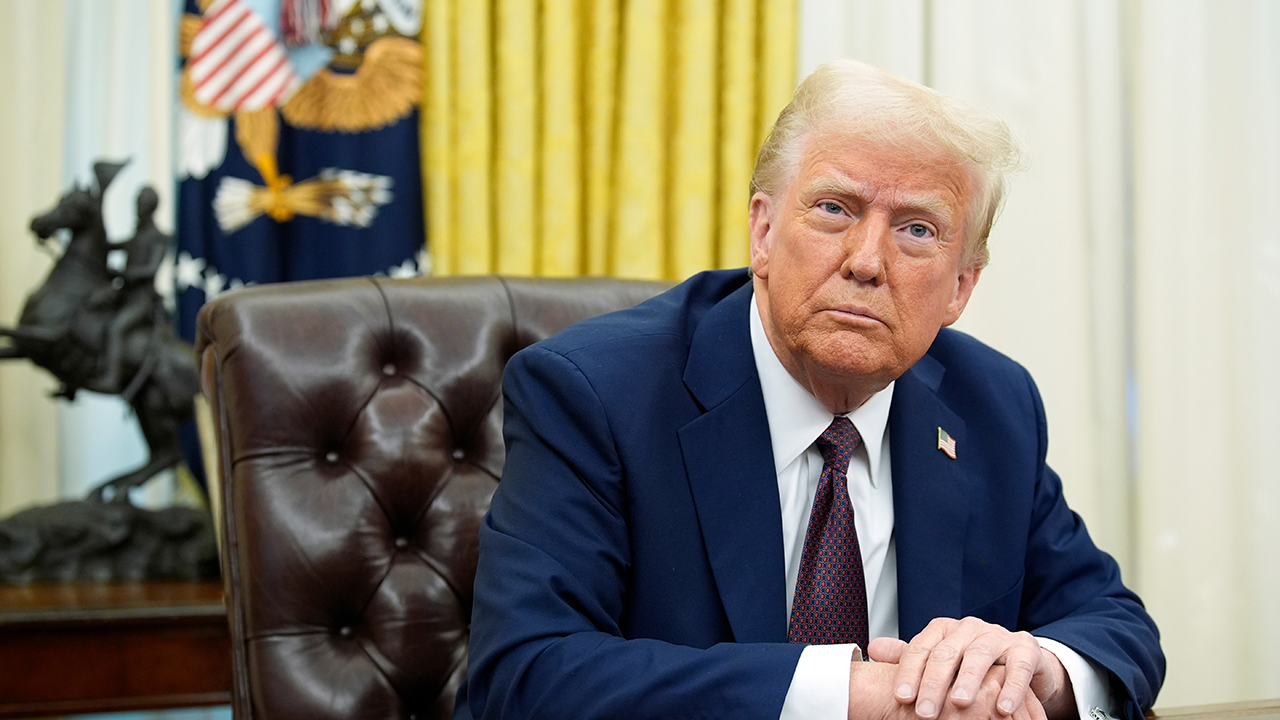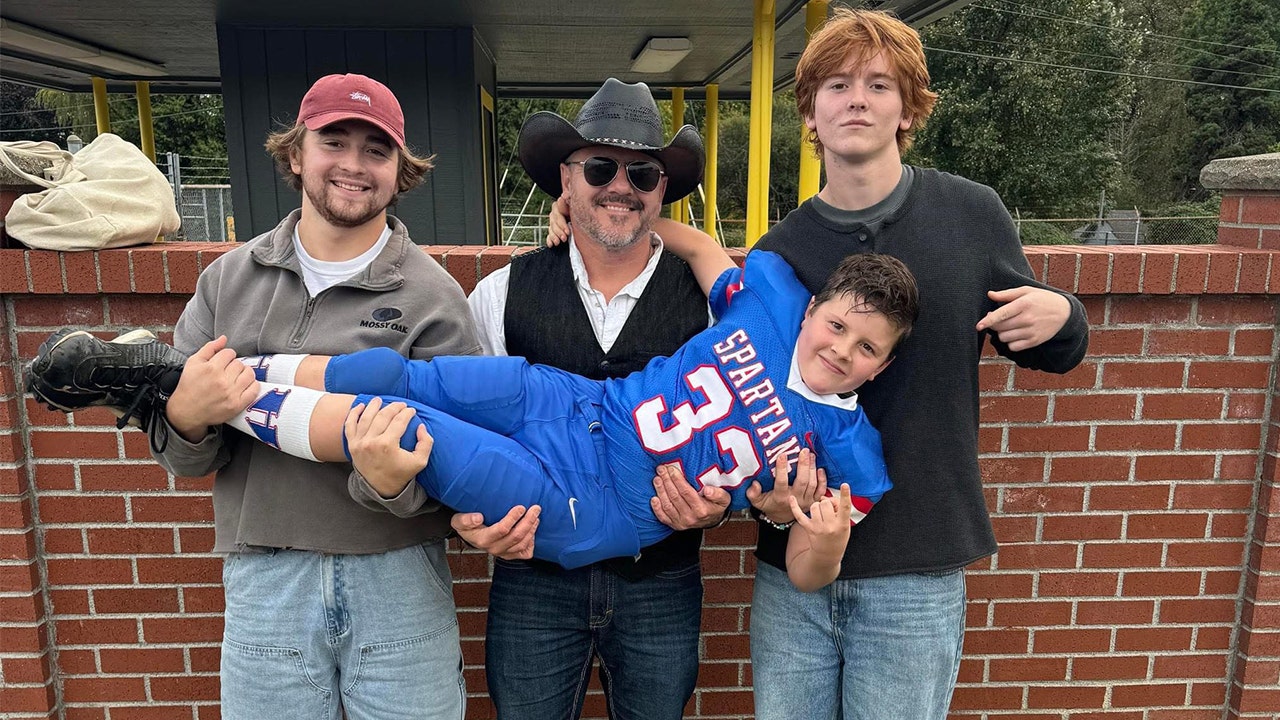I am a retired Navy lieutenant commander who served our nation for nearly two decades in the intelligence community. My wife, Sharon, and I spent years running a successful software company serving federal agencies. We were living peacefully on our small family farm in Virginia’s Shenandoah Valley when, in a pre-dawn SWAT raid, armor-clad FBI agents shattered our lives following the January 6 protest at the nation’s Capitol.
What followed was my arrest for a crime I never committed, solitary confinement in what I can only describe as an icy dungeon, and a battle through a politically driven legal system determined to crush everything Sharon and I had built together.
The thought consumed me: I’m never getting out of here. Why not take control?
There are moments in life when everything you thought defined you simply ceases to exist. For me, that moment came in a Virginia supermax solitary confinement cell, lying on cold concrete after being struck in the spine by a guard, unable to draw a full breath, watching uniformed backs disappear through a steel door that slammed with finality.
In that cell, I had no pride, no dignity, no vanity, no vitality, no ambition, no joy, no self-respect, no ego, no hope. I was reduced to what I can only describe as the rapidly hammering heart of human anguish.
I’ve spent considerable time thinking about whether places of extreme suffering have the power to trap a person’s essence — whether dungeons and passageways can hold people captive by imprinting upon them the heartache, grief, and distress endured, replaying that wretchedness and pain in a perpetual loop across time itself. In those solitary confinement catacombs, I felt that I was living in exactly such a place.
The darkest thought came to me with unexpected clarity: As a Christian, I know I am going to heaven. This knowledge, when I thought too much about it, formed an excellent argument for suicide. Why endure this abuse when I could be with Jesus, with friends and family, with my puppy in heaven? I wouldn’t shake there. I wouldn’t hurt or ache any more. It would stop the pain. In the depths of my hopelessness, this thought gave me a feeling of relief. My suffering would end, and Sharon could live and be free.
I was so far gone that I let the enemy put these thoughts in my head. Death, which should have come to me many years from now as a benevolent old friend bringing gifts of peace and rest, instead clung to my being like a fungus rooted in desperation and despair. I heard other inmates talk of it through the walls and in the passageways — to no one in particular, or at least to no one somebody else could see.
The thought consumed me: I’m never getting out of here. Why not take control?
So I told the Lord then and there that I wanted to come home to Him, to end all of this, and I asked Him to make it so. My will to go on had fled me. Unless you have reached the point of total physical and emotional collapse, I’m not sure I can make you understand. In a way, I was already dead.
That might have been the first and only time this confessed control freak had ever said “Your will be done, Father,” and really meant it.
I had no control over anything in my desiccated world, but I had the ability to relinquish control of my life that day. Nothing that I owned or that I thought was a part of me existed in that hell. Was this “dying to self”? Those curious Bible words suddenly made sense.
It had something to do with my idea of the sum of me as a human being — my personal, selfish desires, the things I wanted or ever thought I did, my plans for a happy future with Sharon. I couldn’t clearly picture them any more. They were lost like last night’s dreams, forgotten with the free man’s morning coffee.
Right now, they counted for exactly nothing.
I didn’t know how to pray at that moment. I was too beaten down, and I didn’t have the tongue for it. All I could offer was: “Whatever You have planned is much better than this, Lord. Let’s try that, please, because this place totally sucks.”
With the warning lights on the remnant of my life force glaring a constant red, He took me in.
RELATED: The grace our cruel culture can’t understand
Gary Hershorn/Getty Images
That surrender — that complete, desperate relinquishment of control — was the moment my faith stopped being something I professed and became something I lived. Not in victory, but in total defeat. Not in strength, but in absolute weakness. It was there, in that place of utter brokenness, that I discovered what faith actually means: trusting God when you have nothing left, not even yourself.
Through years of persecution, Sharon and I were repeatedly pulled from the brink by what I can only describe as miraculous events. Our marital bond and our enduring faith in God sustained us through a battle against overwhelming odds. In a federal courtroom where I faced slander, perjury, and falsification of evidence, it was that moment of complete surrender in solitary confinement — when I finally meant “Your will be done” — that gave me the strength to endure what seemed unendurable.
I am living proof that faith isn’t found in our strength, but in God’s strength when ours has completely failed.
Read the full article here






![‘Hair Discrimination’ is Now Illegal in Pennsylvania Thanks to Democrats [WATCH] ‘Hair Discrimination’ is Now Illegal in Pennsylvania Thanks to Democrats [WATCH]](https://www.lifezette.com/wp-content/uploads/2025/11/2025.11.28-08.15-lifezette-69295a17b0924.jpg)
![Nonbinary Student Attacks Old Man Over TPUSA Chapter Approval [WATCH] Nonbinary Student Attacks Old Man Over TPUSA Chapter Approval [WATCH]](https://www.lifezette.com/wp-content/uploads/2025/11/2025.11.28-10.52-lifezette-69297ed837663.jpg)


![Two West Virginia National Guard Members Identified After Terrorist Attack Near White House [WATCH] Two West Virginia National Guard Members Identified After Terrorist Attack Near White House [WATCH]](https://www.lifezette.com/wp-content/uploads/2025/06/2025.06.08-10.38-lifezette-684568126d131.jpg)

